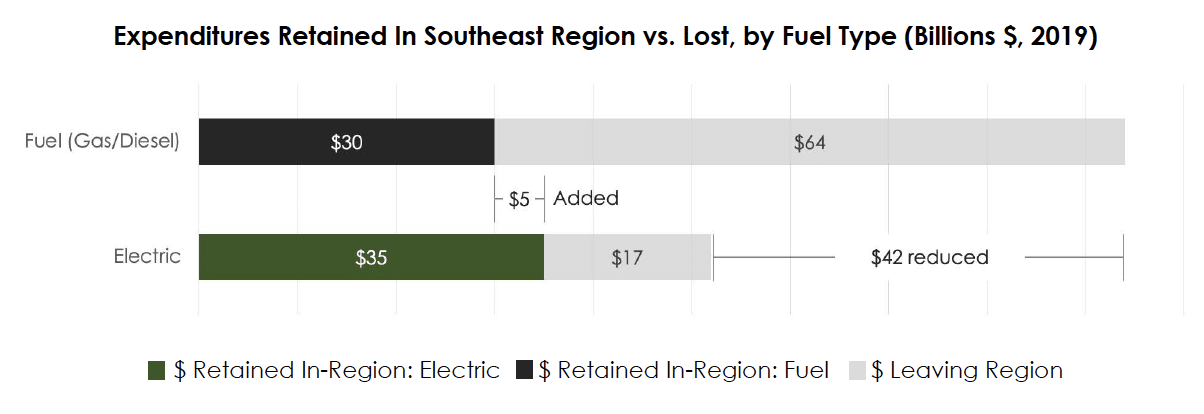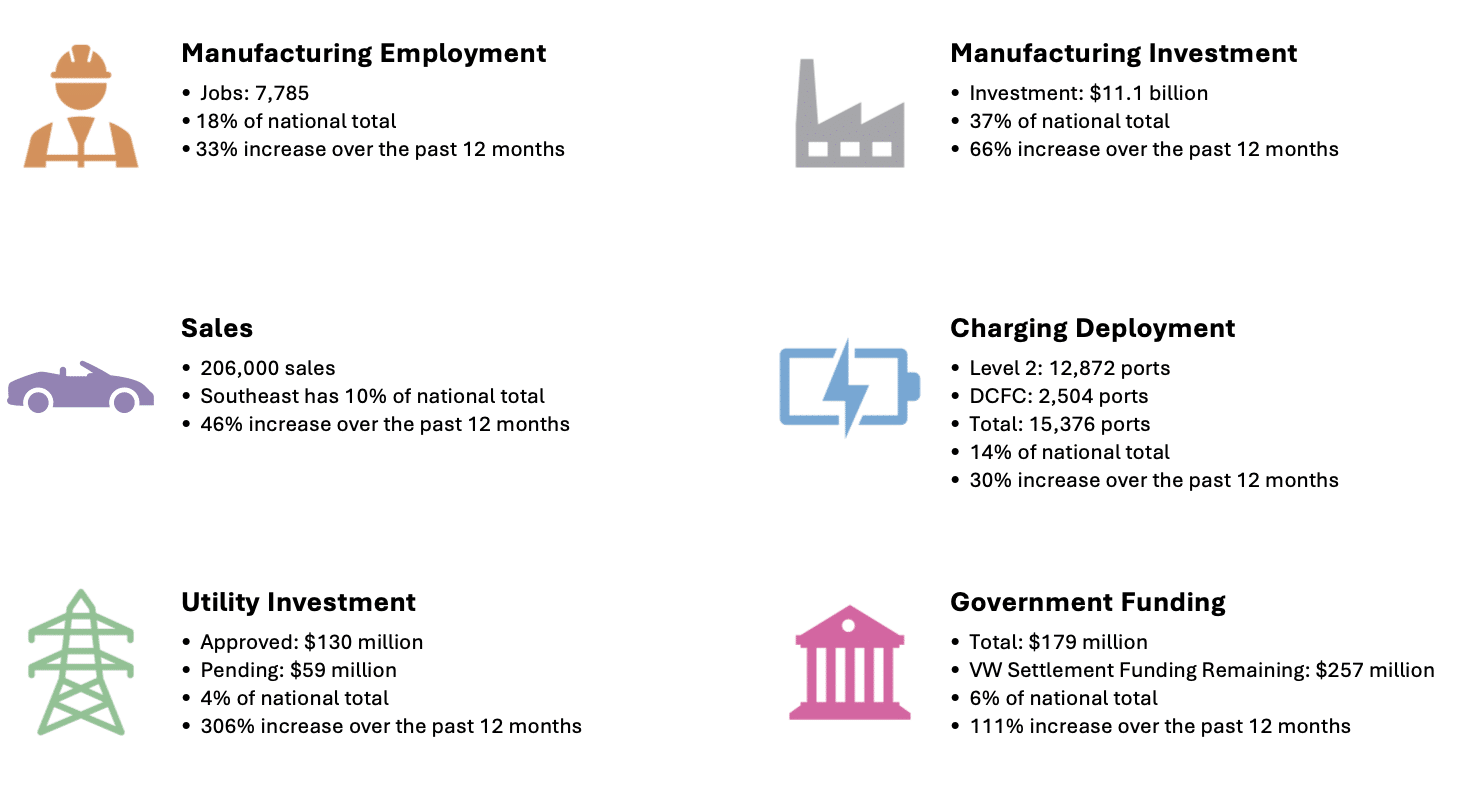In January of 2020, the Georgia Institute of Technology hosted a convening of stakeholders to discuss electric transportation in the Southeast. Several of the participants, Southern Alliance for Clean Energy (SACE) included, began brainstorming how to accelerate the momentum and institute meaningful change.
The participants formed an informal collaboration that includes diverse stakeholders across the value chain, including EV (electric vehicle) manufacturing, EV charging service providers, supply chain companies, electric utilities, fleet managers, academic institutions, Clean Cities coalitions, government agencies, and non-profit organizations. The intent is to accelerate regional electric transportation growth by supporting fact-based policies and actions in the Southeastern states that advance the electric vehicle market and associated infrastructure in the region.

This broad coalition has now launched the Southeast Electric Transportation Regional Initiative (SETRI). SETRI has been designed to address one of the region’s most pressing needs toward realizing the benefits of electric transportation, namely greater coordination and collaboration among key stakeholders.
SETRI aims to address regional market challenges such as EV charging and infrastructure gaps, accessibility, EV model availability and cost, policy guidance, and consumer awareness while unlocking untapped opportunities for economic development, jobs growth, enhanced energy security, and reduced environmental impacts opportunities.
Why the Southeast is Poised to Lead Transportation Electrification
The Southeast is not only emerging as a hub for EV manufacturing investment and job creation, but it is also well-positioned to accelerate EV deployment across a diverse set of applications, including fleets. The report “Retained Transportation Fuel Spending in the Southeast: Electric vs. Internal Combustion Vehicles” released by SACE details how transitioning to all-electric transportation from gasoline- and diesel-powered vehicles has the potential to be an economic boon of up to $47 billion in the region.

Another report by SACE and Atlas Public Policy, “Transportation Electrification in the Southeast,” compiles several EV market data points about the region and underscores the tremendous economic development potential in electrifying transportation systems. For example, the region accounts for 18% of the nation’s population while capturing over 28% of America’s EV manufacturing investment, and a significant share of direct and supply chain jobs across a range of EV markets, including light-duty vehicles, buses, and medium and heavy-duty trucks. Over one-quarter of the estimated $24 billion in committed investments by automakers and battery manufacturers are in the Southeast. As investment and employment continue to rise, new passenger EV models are entering the market.
Southeast EV Market Indicators

However, the Southeast is lagging the nation in EV sales and charging station deployment, accounting for just 10% of national EV sales and 13% of EV chargers deployed. Utility and government funding for transportation electrification are significantly underrepresented in the region: the Southeast accounts for approximately 1% of utility investment and 4% of government funding nationwide. The region also has the risk of growing exposure to climate change and some of the country’s highest poverty levels and racial inequality.
Given the region’s abundant, affordable, and increasingly clean electric power, and an expanding manufacturing supply chain for EVs, the Southeast is in a unique position where transportation electrification can be transformational for the region, including:
- Continued job growth as manufacturing facilities are developed across the region,
- Improved energy security and resilience,
- Grid efficiency improvements and downward pressure on electric rates,
- Lowered operational costs for the region’s fleet operators,
- Improved air quality and reduced CO2 emissions, and
- New mobility options and reduced energy burdens for low- and moderate-income populations.
SETRI Coalition’s Support for EV Market Expansion
Over 60 public and private organizations are founding signatories to SETRI’s Memorandum of Understanding (MOU) aimed at accelerating the benefits of electric transportation for the region. This coalition includes charging companies, utilities, automakers, public officials, city planners, non-profit organizations, and universities, and other research institutions. The coalition will leverage the expertise and resources needed to help state leaders navigate the transition to electric mobility. To accelerate regional transportation electrification growth throughout the Southeast, SETRI intends to:
- Promote regional EV market development,
- Conduct education and outreach to consumers and decision-makers,
- Coordinate state electrification efforts and university research, and
- Collaborate with transportation electrification efforts outside the Southeast.
The SETRI coalition welcomes the participation of additional organizations in the Southeast electrification transportation ecosystem. Entities interested in signing the MOU can do so at any time, and participation in the coalition is not restricted to signatories.
SACE is pleased to be a founding signatory of the SETRI MOU and looks forward to collaborating with other stakeholders to advance policies that will electrify our transportation systems throughout the Southeast. Visit the SETRI website or email SETRIUSA@gmail.com for more information or to sign up.
Electrify the South is a program of the Southern Alliance for Clean Energy that leverages research, advocacy, and outreach to promote renewable energy and accelerate the equitable transition to electric transportation throughout the Southeast. Visit ElectrifytheSouth.org to learn more and connect with us.



